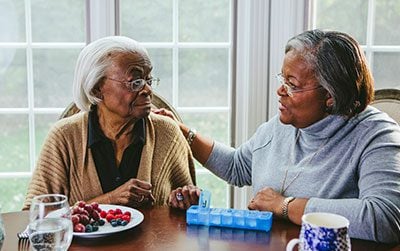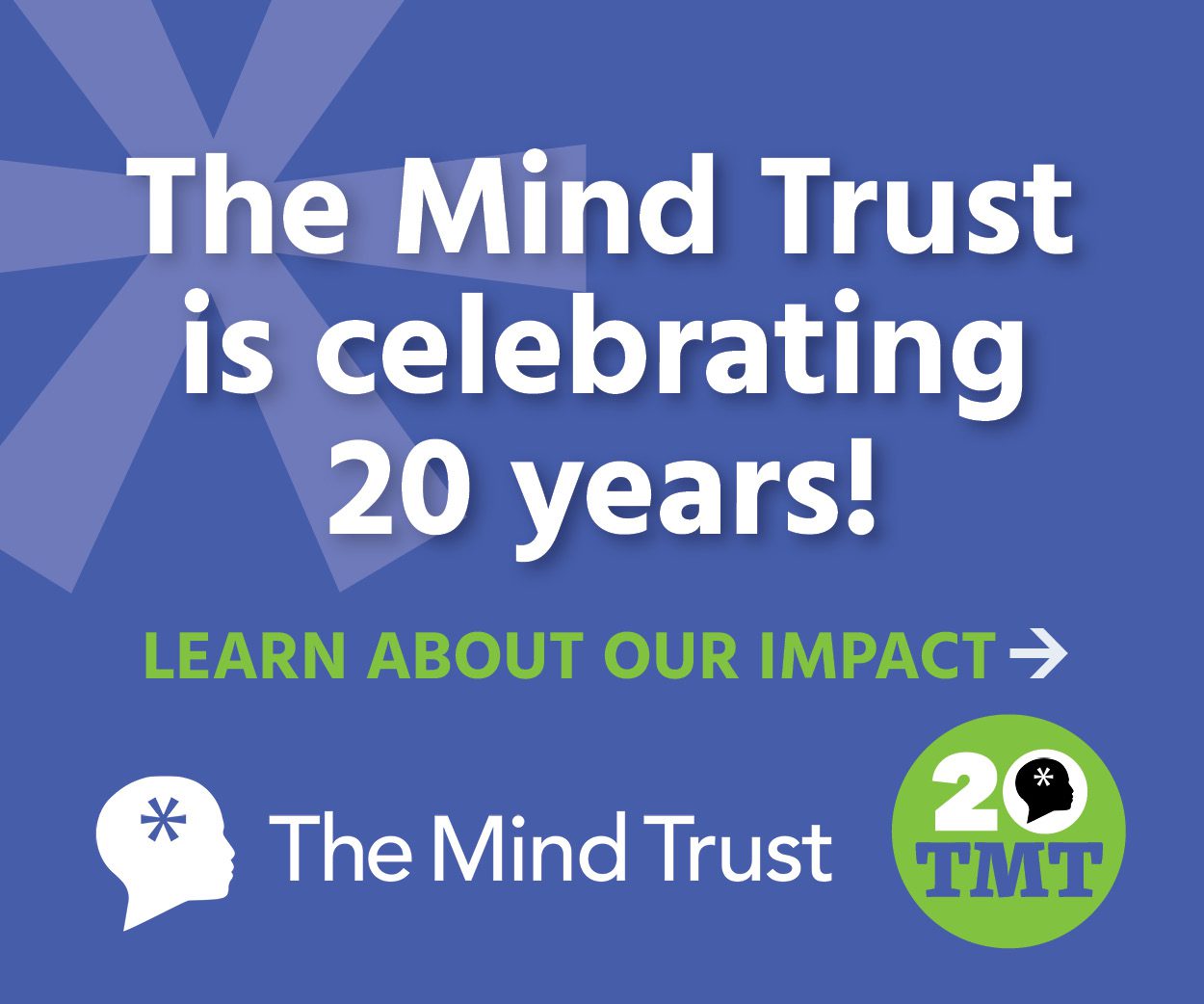Caring for aging family members can be both a profound privilege and an immense challenge.
For many in the Martindale-Brightwood community, this responsibility often intersects with broader cultural and systemic pressures, especially among Black and brown families.
Schonda Davis, a lifelong Indianapolis resident, knows this journey well. She spent years caring for her grandmother and, later, her mother.
“Both my grandmother and my mom had some form of dementia,” Davis said. “When I was caring for my mom, they both were living with it at the same time, so it was a lot. … It’s very taxing, but I was working full-time. I was also in school and caring for my mother at the same time, and that’s the same for a lot of people.”

For Davis, caregiving required a delicate balance between work, family and her own mental health. She often felt overwhelmed, with resources and support feeling just out of reach.
“You’re kind of sandwiched between caring for two sets of people or maybe two generations while you’re still trying to work and figure out how to have a life and take care of yourself, which is really hard,” Davis said. “It definitely took its toll on my physical health.”
Her story reflects the broader challenges faced by caregivers in marginalized communities, where access to healthcare, financial resources and culturally competent support often lags. Despite these challenges, Davis found solace in learning and power in knowledge.
“I really did a lot of my own research,” Davis said. “I believe in arming people with knowledge and information. I will tell any caregiver, one of the biggest things is going to be making sure that you educate yourself about the disease so that you know what can potentially come.”
Robin Rockel, community engagement manager for the Alzheimer’s Association Indiana Chapter, emphasized the importance of education and outreach.

“Often caregivers will get to a point where maybe they should have asked for help before they realized they really needed it,” Rockel said. “They might just be having a bad day, and they might be just ready to give up, get out of the situation. We just want them to know that we’re available even if it’s just emotional support. If you just need someone to talk to, you can reach out.”
The Alzheimer’s Association provides resources ranging from support groups to education on disease progression.
“We can do education on what the latest research is showing when it comes to healthy lifestyles and risk reduction,” Rockel said. “We can do education on those 10 warning signs. We also have education available for people who are just trying to understand the disease that they are helping people or someone in their family has the disease. We can kind of help them understand what it is and how it changes someone.”
Despite these resources, systemic issues persist. Statistics show the disproportionate burden of caregiving often falls on women, and within Black and brown communities, the financial and emotional toll can be even greater.
Davis’s journey highlights the critical need for a strong support network.

“You’re going to need a team,” Davis said. “You’re going to need this system in place when you’re having a really, really hard day when new symptoms arise. So, you’re going to need a team of people.”
Rockel echoed this sentiment, emphasizing the need for targeted outreach in neighborhoods like Martindale-Brightwood.
“We also have many support groups around the city, and they’re in everywhere in different parts of Indianapolis and also the surrounding communities. Those are specifically for caregivers. If someone is interested in finding more information about caregiver support groups through us, they can call our helpline and they will put in their zip code and let them know what’s happening around them.’
For those looking for support, the Alzheimer’s Association Indiana Chapter offers free consultations, a 24/7 helpline and caregiver training. Local organizations like the Martindale-Brightwood Community Development Corporation also provide resources for caregivers, including wellness workshops and financial assistance programs.
To learn more or access resources, visit alz.org or call their helpline at 1-800-272-3900.
This reporting is made possible by a grant from the Indianapolis African-American Quality of Life Initiative, empowering our community with essential health insights. https://iaaqli.org/
To read more health stories, click here.
Contact Health & Environmental Reporter Hanna Rauworth at 317-762-7854 or follow her on Instagram at @hanna.rauworth.
Hanna Rauworth is the Health & Environmental Reporter for the Indianapolis Recorder Newspaper, where she covers topics at the intersection of public health, environmental issues, and community impact. With a commitment to storytelling that informs and empowers, she strives to highlight the challenges and solutions shaping the well-being of Indianapolis residents.







